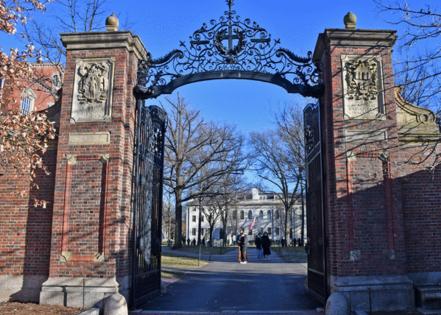Commentary: The ivory tower is a persisting legacy of white supremacy
Published in Op Eds
The Trump administration and conservative politicians have launched a broad-reaching and effective campaign against higher education and diversity, equity, and inclusion (DEI) efforts in particular. These attacks, often amplified by neo-conservative influencers, are not simply critiques of policy or spending. At their core, they reflect anxiety over the growing presence and visibility of marginalized students and scholars within institutions that were not historically designed for them.
The phrase ivory tower has become shorthand for everything critics dislike about higher education. It evokes images of professors lost in abstract theorizing, and administrators detached from real-world problems. But there is a deeper meaning, one rooted in the racial history of academia. Whether consciously or not, the term reinforces the idea that universities are–and should remain–spaces that uphold whiteness.
When critics lament the state of the ivory tower, they are often reacting not just to elitism, but to the changing demographics and priorities of colleges and universities. As enrollment by students of color and women have been making gains and new areas of study have emerged and gained traction–from ethnic studies to gender studies to critical race theory–we’ve seen a corresponding backlash: funding cuts, attacks on DEI, and growing calls to limit what can be taught.
The roots of exclusion in higher education run deep. The nation’s first colleges—Harvard, Yale, Princeton—were created for the sons of wealthy white elites. They were built, in part, by sweat generated through the Transatlantic Slave Trade. Higher education institutions were also constructed on land stolen from indigenous peoples, and for centuries, those in power within the ivory towers systematically excluded Black, indigenous, and other marginalized groups. Even today, that legacy persists.
Across the country, students from low-income families still struggle to access and complete college. The graduation gap between students from the lowest and highest income groups remains stark, and public universities face increasing pressure to cut programs that serve students pursuing social justice and public service careers.
“Ivory” has long been a symbol of purity and exclusivity–its colonial history tied to European extraction from Africa. When applied to the university, the metaphor suggests not only elitism but also racial exclusivity. In that light, the “ivory tower” becomes not just a metaphor for detachment but for a structure built to elevate whiteness.
As sociologists, we see how these dynamics play out. Black intellectuals are more likely to have their work dismissed as "activism." Women scholars are scrutinized more harshly when they challenge dominant paradigms. Indigenous knowledge systems are often viewed as less rigorous than Western models. And public attacks tend to target the very disciplines—African American studies, feminist theory, sociology—that question existing power structures.
When critics call for the dismantling of the ivory tower, we should ask: Which parts of the university do they want to dismantle, and which do they want to preserve? Who benefits from these changes?
Universities were built as sites of exclusion, designed to reinforce class, gender and racial hierarchies, and have long operated as gatekeeping institutions. And, perhaps these unsustainable features of our history are the very reasons they are vulnerable now. If universities had made themselves accessible to all decades ago, perhaps Americans would not have elected those who seek to destroy them now. If we are going to critique higher education, we must do so honestly.
Higher education is not without its problems. Tuition is rising, student debt is crushing, and too many students are taught by underpaid adjuncts. But the answer isn’t to reject higher education altogether. The answer is to transform it.
We need universities that are accessible, equitable, and publicly supported. We need institutions that recognize the value of diverse disciplines and diverse people. And we need to stop pretending that critiques of the "ivory tower" are always neutral. Too often, they mask a desire to return universities to a time when fewer voices were heard and fewer people had access.
If we are truly committed to equity in education, then we must be honest about the words we use and the histories they reflect. It’s time to reconsider the ivory tower–both as a metaphor and as a model for our institutions.
____
Yolanda Wiggins is an assistant professor of sociology at San José State University and a Public Voices Fellow at The OpEd Project.
Megan Thiele Strong is a professor of sociology at San José State University and a Public Voices Fellow at the The OpEd Project and a member of the Scholars Strategy Network.
_____
©2025 The Fulcrum. Visit at thefulcrum.us. Distributed by Tribune Content Agency, LLC.
























































Comments